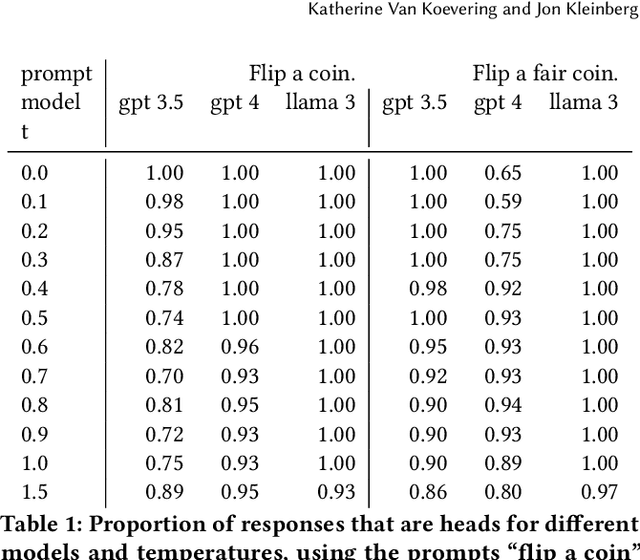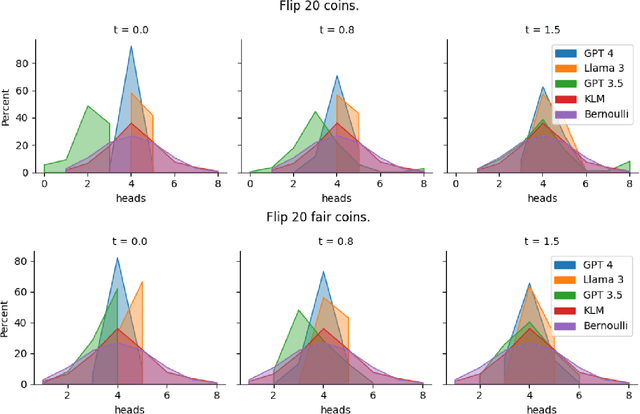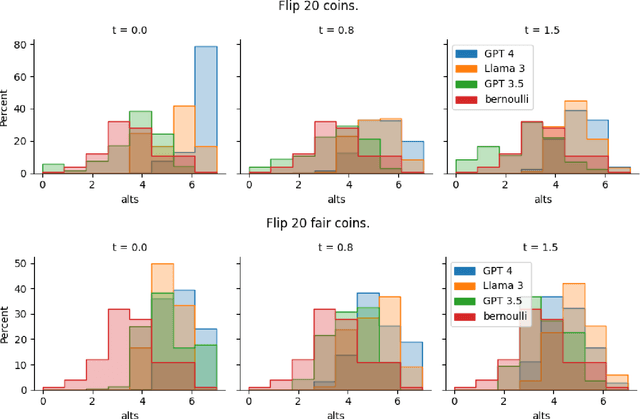How Random is Random? Evaluating the Randomness and Humaness of LLMs' Coin Flips
Paper and Code
May 31, 2024



One uniquely human trait is our inability to be random. We see and produce patterns where there should not be any and we do so in a predictable way. LLMs are supplied with human data and prone to human biases. In this work, we explore how LLMs approach randomness and where and how they fail through the lens of the well studied phenomena of generating binary random sequences. We find that GPT 4 and Llama 3 exhibit and exacerbate nearly every human bias we test in this context, but GPT 3.5 exhibits more random behavior. This dichotomy of randomness or humaness is proposed as a fundamental question of LLMs and that either behavior may be useful in different circumstances.
 Add to Chrome
Add to Chrome Add to Firefox
Add to Firefox Add to Edge
Add to Edge